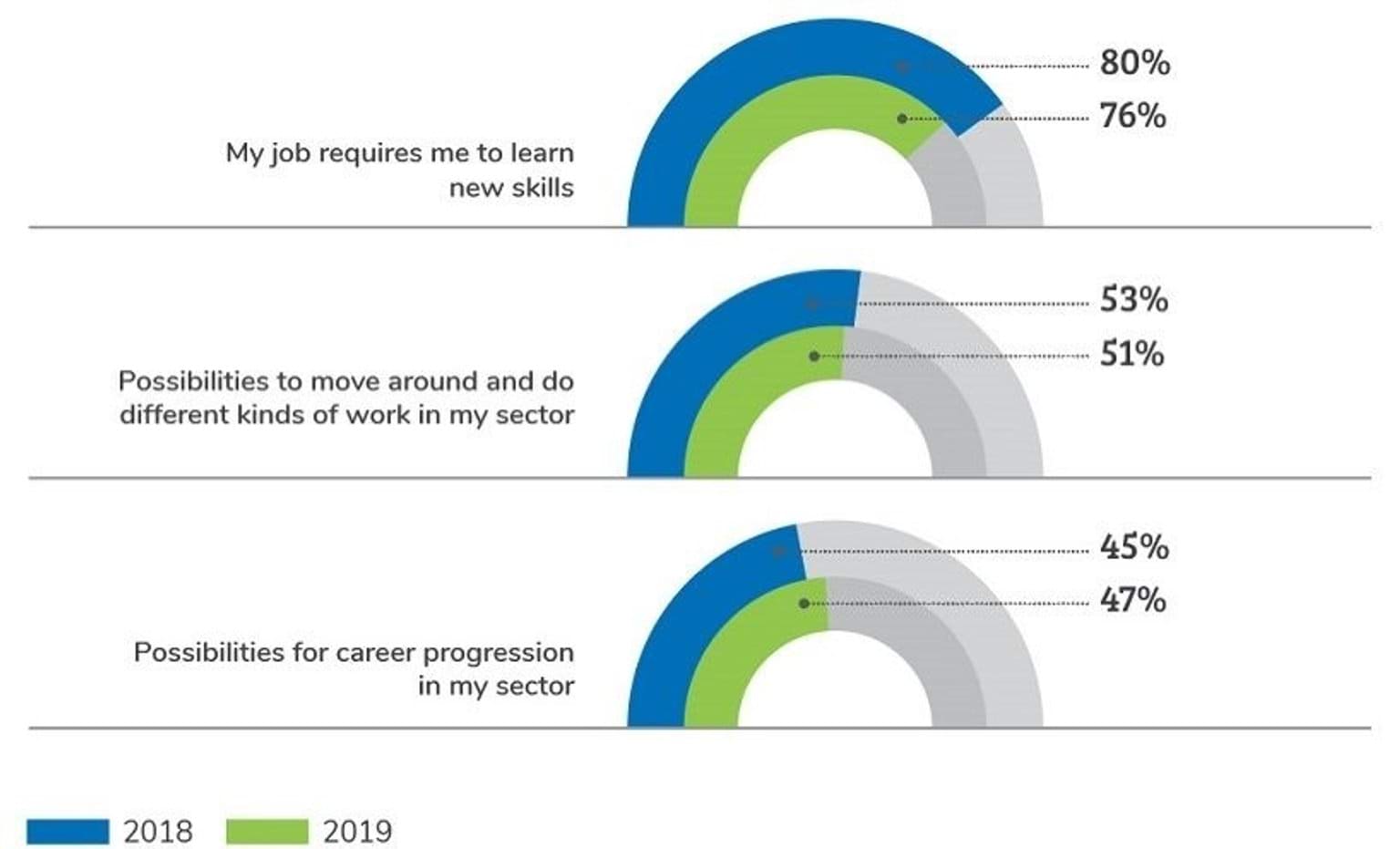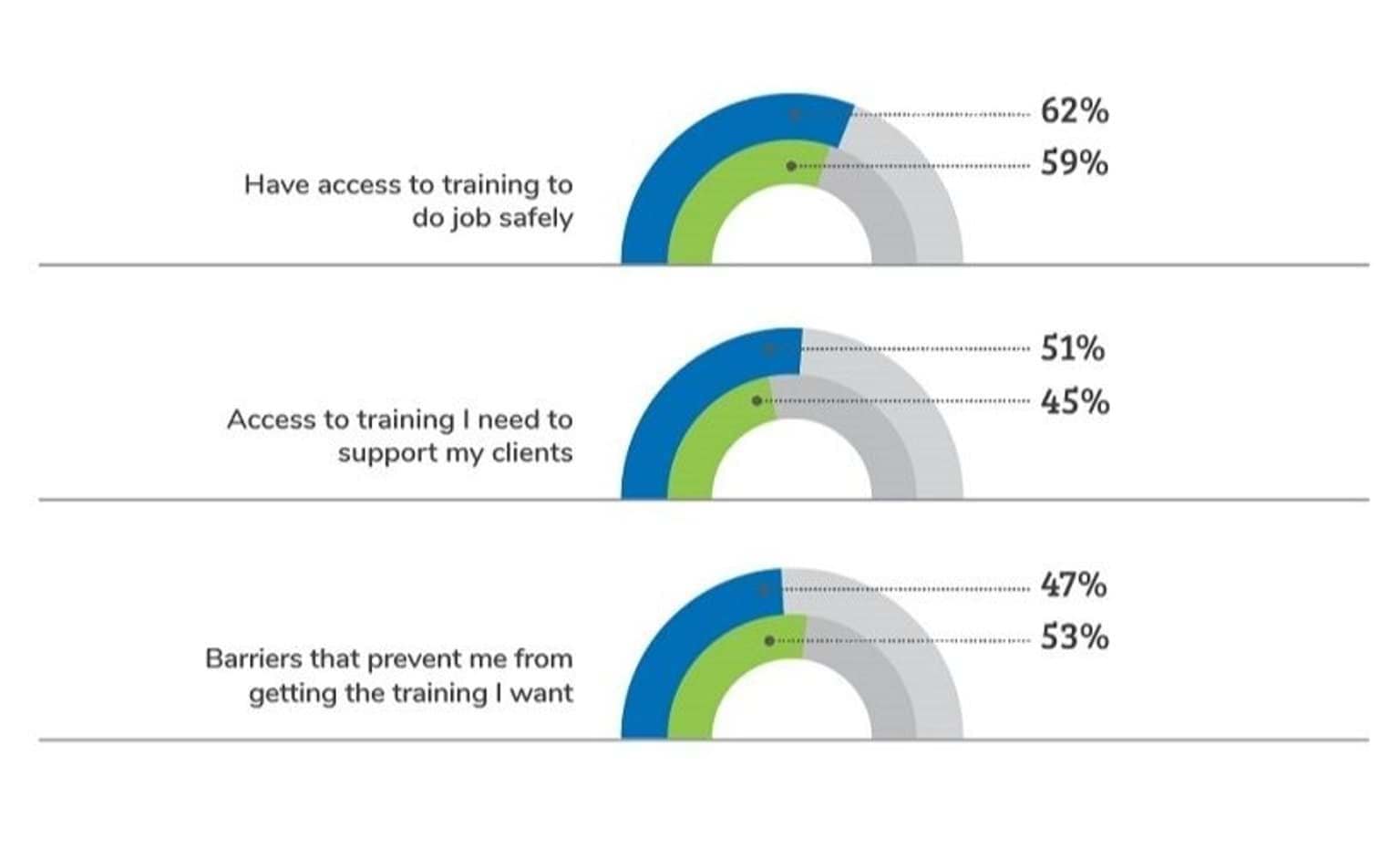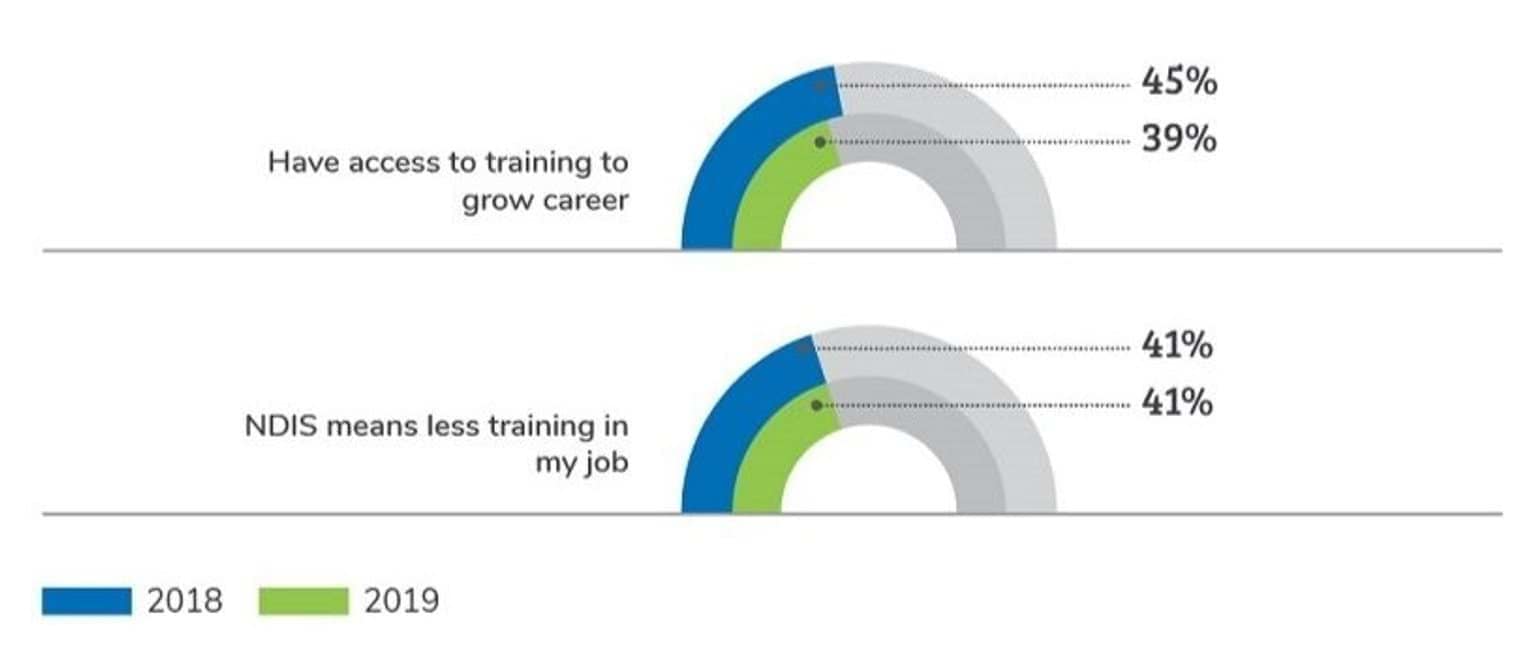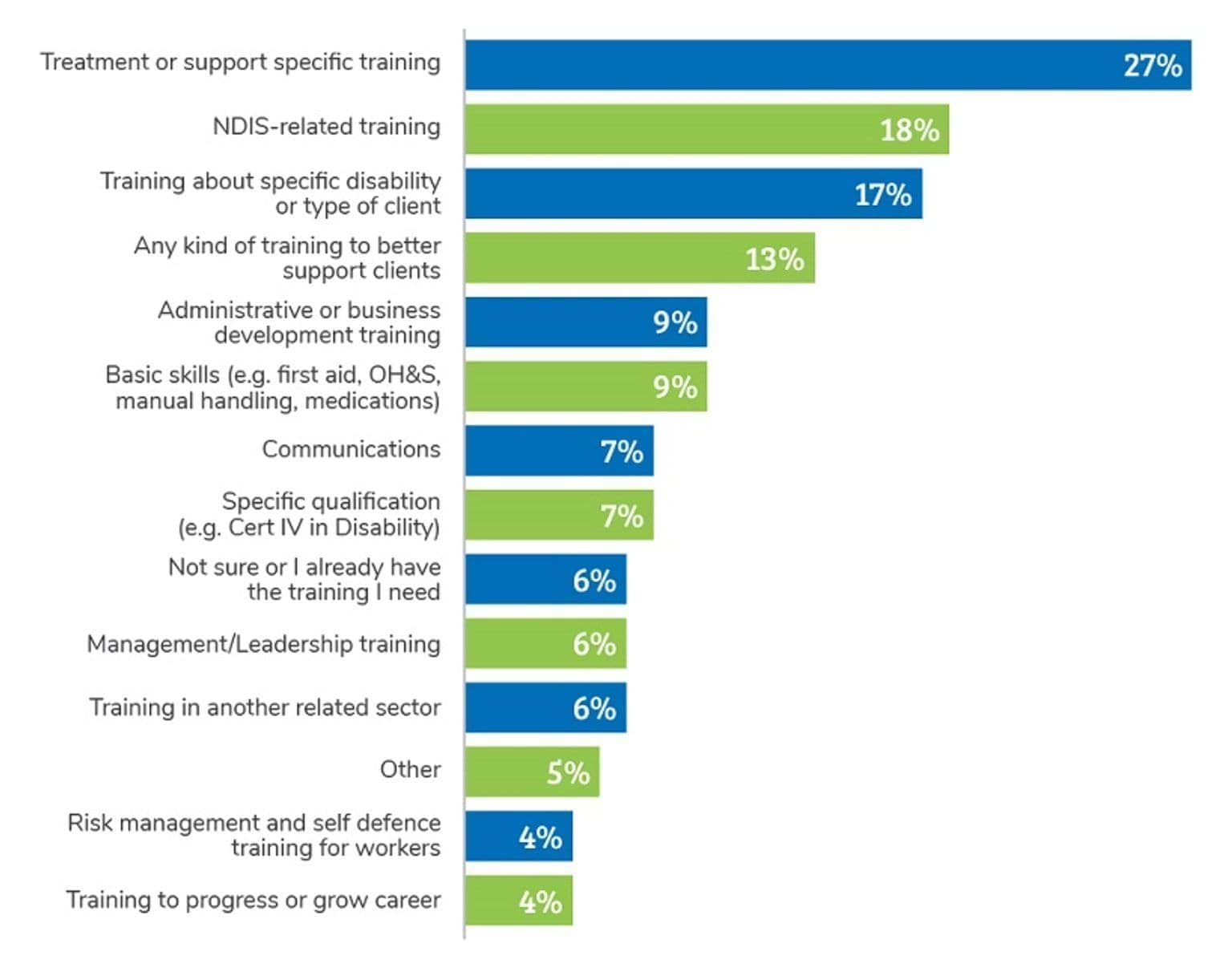Career development and progression was also a key focus of the research in 2019. Many participants in the research were passionate about their work and wanted to continue to work in disability: in the survey, almost half (48%) intended to still be working in the sector in five years’ time, while only 15% said they planned to leave the sector, and 37% were unsure. However, in the qualitative research, participants discussed often limited options for those who want progression or variety in their career. “Limited career development opportunities” was the number one reason cited by those who said they were unsure or would not be working in the sector in five years’ time (27%).
Opportunities created by the NDIS
Despite the challenges, it was often recognised that the NDIS creates new opportunities for the disability workforce.
There was some acknowledgement that there has been an increase in availability of jobs (mostly in direct support roles) under the NDIS as more participants create demand for a greater range of supports. Additionally, many recognised the NDIS enables the workforce to be engaged directly by service users, which can come with the benefits of more money and flexibility but also has the potential to create risk and isolation.
A further benefit of the NDIS for some is that there is room for specialisation given the number and diversity of NDIS participants. It was noted, however, that a challenge for providers will be ensuring that workers with specialist skills are appropriately recognised and remunerated for these skills.
There is appetite for greater client responsibility, mentorship and training roles
For many disability workers, the ideal role involved ongoing contact with clients, coupled with different responsibilities, such as training, mentoring or planning roles. For some, support coordination could fit this description and was seen as a potentially positive way to make a difference for a broader range of clients. However, there was generally perceived to be limited opportunities to undertake these roles.
"The only step up from [a direct support worker] is to be a coordinator, but there aren’t as many positions as there are support workers. You get put off - there’s no point in applying."
Many participants also suggested that in order to enable career mobility within the sector, a greater emphasis on skills transferability was needed. Many felt that they lacked the skills – such as financial and leadership skills - to transition to management, for example. There was some demand for this kind of training to enable individuals to progress in their career.
"The sector would hold a lot more staff if it was easier to transition with your skills."
Those in direct-support roles noted they generally lacked information and direction about career pathways available to them, suggesting a need for career pathways documents, expos or mentorship to raise awareness about the diversity of careers available and recommended access points.
Many workers intend to stay in their current role
Despite some interest in progression and variety, many participants were quite satisfied with their work and were happy to stay in the same role. These participants did often want to see improvements to their working conditions, however.
"Maybe the younger ones will want a career, but the majority of people at the service are just happy doing what they are doing. I absolutely love my job, I love my career, I don’t want more responsibility, I am happy where I am at the moment, I love my job because I get outdoors, and keep myself active. I work with an amazing team and I am able to help amazing people."
The NDIS present barriers to mentorship
For many workers – particularly those in Allied Health – the ability to mentor staff was something they valued about their role. However, many reported that the NDIS creates barriers to mentorship and opportunities to learn from peers under current funding structures. This impacted new staff as well as those with more experience who enjoyed a mentorship role.
"This system doesn’t allow [me to supervise students] …it’s taken the pleasure away from me of mentoring the next generation of students, but also the opportunity for me to learn from them."
"In early intervention, training and learning is done working side by side with them [colleagues], but NDIS will only pay for one therapist at a time, it doesn’t lend itself to that team approach. The way we used to work with groups; you would all learn from each other."
By sector, those employed by non-for-profit (50%) organisations were significantly more likely to believe that the NDIS means less training in their job. Also, those working in the private (48%) and not for profit (58%) sector were significantly more likely to agree that there are barriers that prevent them from getting the training they wanted.
Residential workers were significantly less likely than all others to believe that there are barriers preventing them from getting the training they want, but this was the only difference by setting in relation to training.
Barriers most highlighted were lack of time to participate in training (51%), the expense of training (48%) and lack of funding to the organisation for training (47%).
Updated



